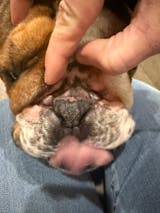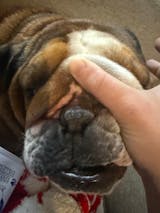Do Dogs Get Sicker in Colder Weather?
During the winter months, it can be difficult to keep our four-legged friends happy and healthy. As temperatures drop, many dogs suffer from common health problems that are unique to this season. From dry skin to arthritis, there are several issues that pet parents need to watch out for if they want their pup to remain in tip-top shape until spring arrives. In this blog post, we'll discuss the most common health issues for dogs during the winter and provide some tips on how you can help your furry friend stay healthier during these cold months.

Do Dogs Get Sicker in Colder Months?
Yes, dogs can get sick more often during winter due to decreased activity level and exposure to cold weather. Cold air can cause respiratory issues, such as coughing and congestion, while the decreased activity level can lead to other ailments. Respiratory issues are particularly common in brachycephalic dogs due to their flat faces, and they’re more prone to having issues with the cold. In addition, winter brings increased risk of parasites and bacterial infections due to wetter conditions.
What Are the Most Common Health Issues During Winter?
The most common health problems that affect dogs during the winter months include:
- Dry skin caused by reduced humidity in the air.
- Arthritis due to colder temperatures and less exercise.
- Coughing and congestion from cold air.
- Ear infections due to water getting trapped in the ear canal after playing in snow or swimming.
- Parasites such as fleas, ticks, and mites that thrive in the wetter winter conditions.
- Gastrointestinal issues such as diarrhea and vomiting caused by eating spoiled food or ingesting antifreeze.
Tips To Keep Your Dog Healthy During the Colder Months.
Fortunately, there are several steps pet parents can take to help keep their pup healthier during the winter months:
- Make sure your dog is on a regular flea, tick, and mite prevention routine.
- Provide warm bedding for your pup if they’ll be spending any time outdoors.
- Feed your pooch a high-quality diet with plenty of lean proteins and essential fatty acids.
- Consider adding omega 3 supplements to their food to help combat dry skin.
- Keep walk times shorter and more frequent, rather than one long session.
- Properly groom your pup, as mats can cause discomfort in colder temperatures.
- Keep your pup dry after playing in the snow or taking a swim.
- Prioritize your doggo's skincare routine by keeping the problem areas clean and free of debris and protected from moisture, yeast, fungus and bacteria.
- Monitor your pet for signs of distress during outdoor activities.
The Bottom Line
It's important to be aware of the potential health issues that can arise during winter for our canine companions. With proper preventive care and a few adjustments to their routine such as shorter walks and omega 3 supplements, you can ensure that your pup is healthy throughout the cold months ahead.
Your doggo's skin needs extra care during the colder months. Keep their skin healthy and free of moisture, fungus and bacteria with Squishface Wrinkle Wipes and Squishface Wrinkle Paste. Check out below how easy it is to apply Wrinkle Paste to keep your pup's wrinkles clean and healthy this season. If you have any concerns about your pet’s health, please don’t hesitate to contact your veterinarian. Together, you can create a plan to keep your pup safe and healthy during the winter season.
Be sure to follow us on TikTok, Instagram, Facebook, Pinterest, YouTube, and visit our blog weekly for more tips on caring for your wrinkly doggo, and the latest on all things Squishface!









